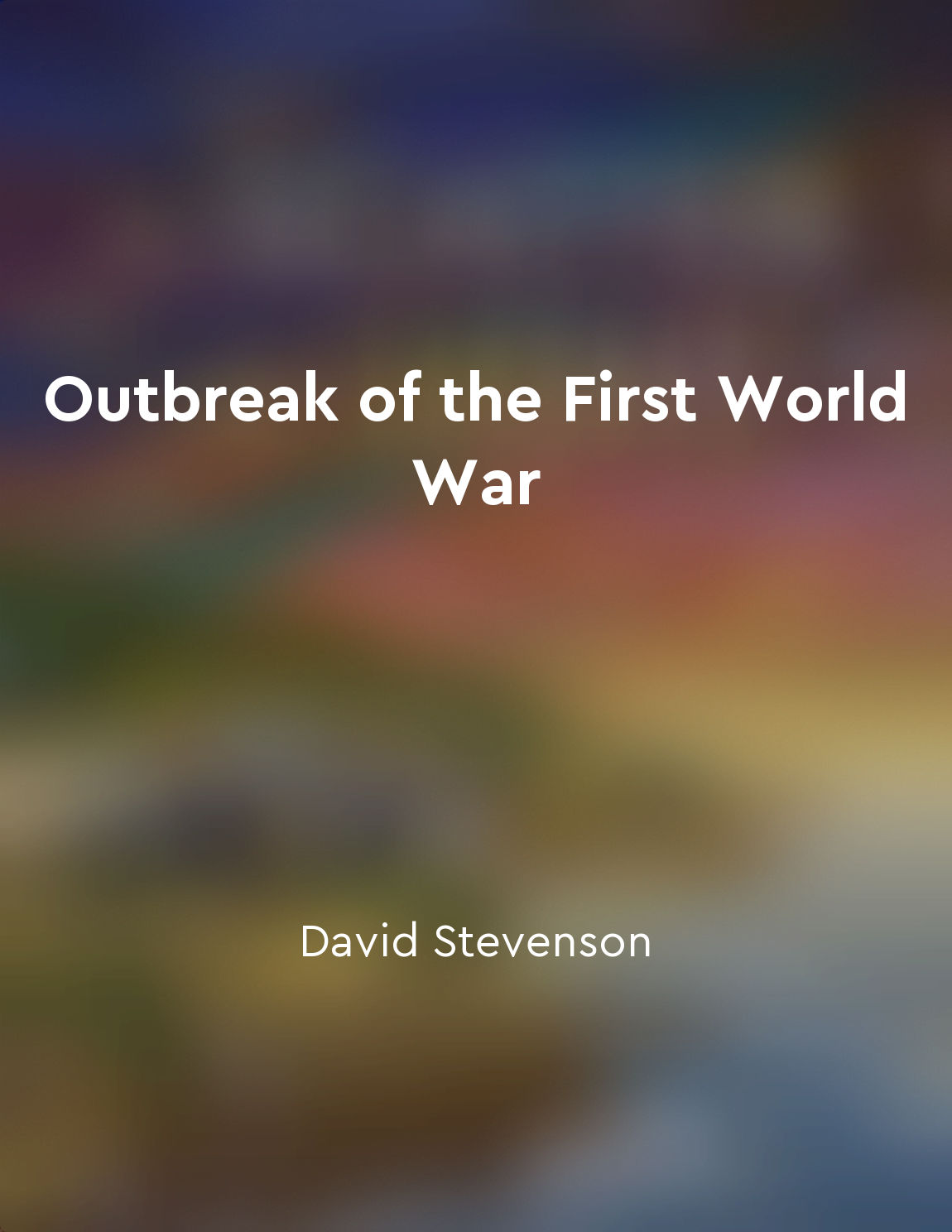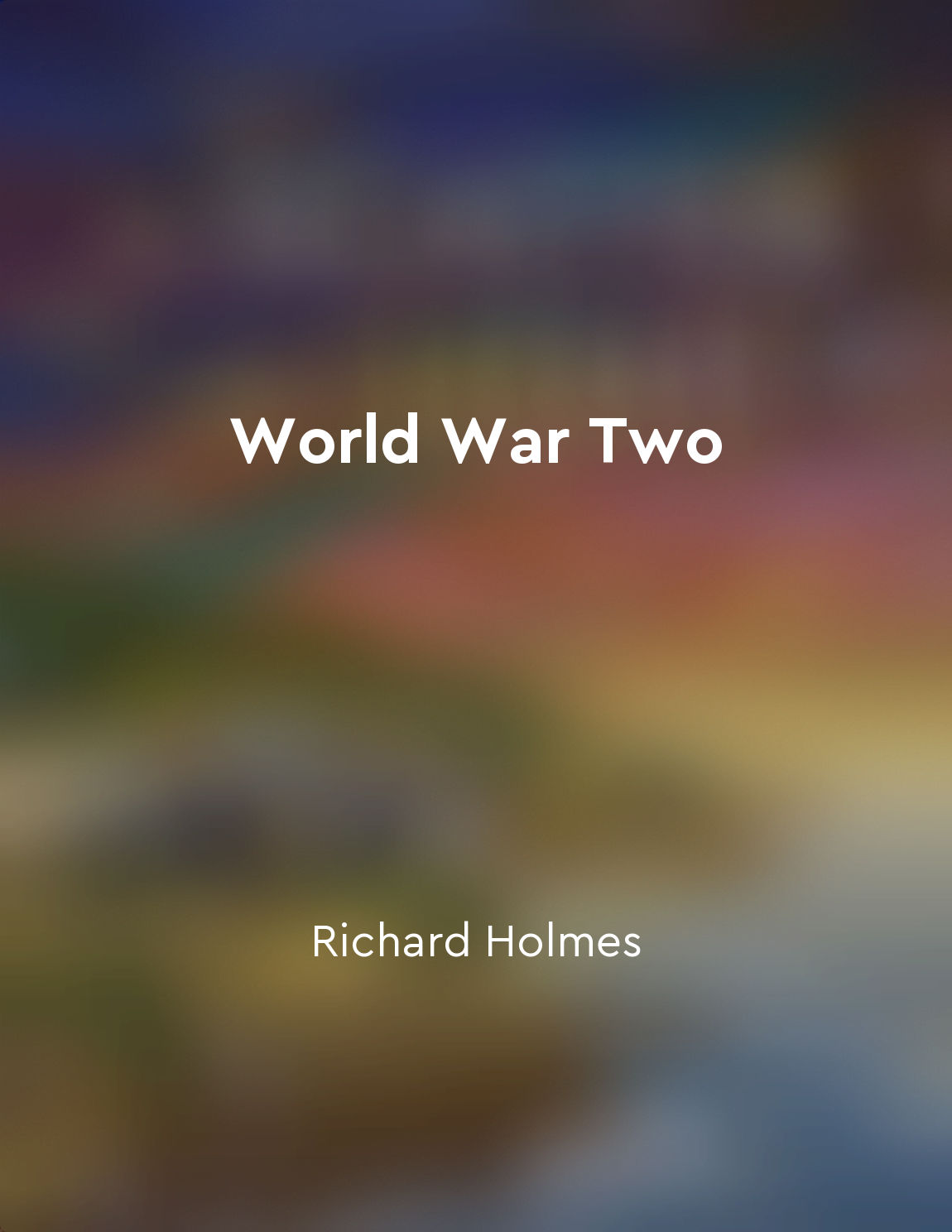Shift in public opinion towards war from "summary" of Outbreak of the First World War by David Stevenson
David Stevenson vividly portrays the dramatic transformation in public sentiment leading up to the outbreak of the First World War. At the outset, the prevailing mood in Europe was characterized by a sense of optimism and faith in diplomacy to avert conflict. However, as tensions escalated and the specter of war loomed ever closer, there was a noticeable shift in public opinion towards a more belligerent stance. This shift can be attributed to a variety of factors, including the dissemination of propaganda by governments and the press, which served to inflame nationalist sentiments and demonize the enemy. At the same time, the mobilization of military forces and the imposition of war measures created an atmosphere of urgency and inevitability, further eroding hopes for a peaceful resolution. As the drums of war grew louder, public opinion began to coalesce around the idea of national honor and self-defense, overriding earlier calls for restraint and negotiation. The outbreak of hostilities in the summer of 1914 served as a catalyst for this transformation, as the realities of modern warfare shattered illusions of a short, glorious conflict. In this charged climate, voices advocating for peace and moderation were increasingly marginalized, as war fever swept across Europe like a wildfire. The once-distant prospect of conflict had become a stark reality, and the public mood reflected a growing acceptance of the need to defend one's country at all costs.- The shift in public opinion towards war was a complex and multifaceted process, driven by a combination of fear, propaganda, and the harsh realities of international politics. Stevenson's analysis provides valuable insights into the psychology of mass mobilization and the power of rhetoric to shape public attitudes in times of crisis.
Similar Posts

Advancements in warfare technology
Advancements in warfare technology played a crucial role in shaping the course of the First World War. The rapid developments i...

Diplomatic relations reshaped
The tumultuous years of World War Two brought about significant changes in diplomatic relations between nations. Traditional al...

Diplomatic relations reshaped
The tumultuous years of World War Two brought about significant changes in diplomatic relations between nations. Traditional al...
Surveillance is omnipresent in society
Surveillance, my friends, is an ever-watchful eye that peers into every corner of our society, lurking in the shadows like a si...

